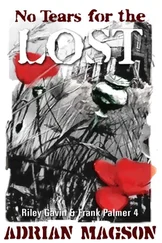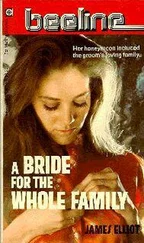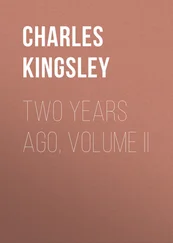James Ritchie - Crying for the Light - or, Fifty Years Ago. Volume 3 of 3
Здесь есть возможность читать онлайн «James Ritchie - Crying for the Light - or, Fifty Years Ago. Volume 3 of 3» — ознакомительный отрывок электронной книги совершенно бесплатно, а после прочтения отрывка купить полную версию. В некоторых случаях можно слушать аудио, скачать через торрент в формате fb2 и присутствует краткое содержание. Жанр: foreign_prose, на английском языке. Описание произведения, (предисловие) а так же отзывы посетителей доступны на портале библиотеки ЛибКат.
- Название:Crying for the Light: or, Fifty Years Ago. Volume 3 of 3
- Автор:
- Жанр:
- Год:неизвестен
- ISBN:нет данных
- Рейтинг книги:4 / 5. Голосов: 1
-
Избранное:Добавить в избранное
- Отзывы:
-
Ваша оценка:
- 80
- 1
- 2
- 3
- 4
- 5
Crying for the Light: or, Fifty Years Ago. Volume 3 of 3: краткое содержание, описание и аннотация
Предлагаем к чтению аннотацию, описание, краткое содержание или предисловие (зависит от того, что написал сам автор книги «Crying for the Light: or, Fifty Years Ago. Volume 3 of 3»). Если вы не нашли необходимую информацию о книге — напишите в комментариях, мы постараемся отыскать её.
Crying for the Light: or, Fifty Years Ago. Volume 3 of 3 — читать онлайн ознакомительный отрывок
Ниже представлен текст книги, разбитый по страницам. Система сохранения места последней прочитанной страницы, позволяет с удобством читать онлайн бесплатно книгу «Crying for the Light: or, Fifty Years Ago. Volume 3 of 3», без необходимости каждый раз заново искать на чём Вы остановились. Поставьте закладку, и сможете в любой момент перейти на страницу, на которой закончили чтение.
Интервал:
Закладка:
At length our illustrious friends reach Sloville, or rather the outskirts of the town, where the Agricultural Show is held. Here the sheep are inspected; and then they pass on to the shorthorns and Herefords; and then, very evident in more ways than one were the pigs of Berks and Hants, and other choice breeds. How they were watched by the fat farmers with sympathetic eyes! How the rustic chawbacon doted on them! We hear much of the roast beef of old England, but dearer to the national heart is its roast pork, especially when it comes to us in the shape of roast pig, immortalized by the charming Elia, and the theme – the fitting theme – of one of his most eloquent essays: ‘See him,’ he writes, ‘in the dish – his second cradle – how meek he lieth! Wouldst thou have the innocent grow up to the grossness and indocility which too often accompany maturer swinehood? Ten to one he would have proved a glutton, a sloven, an obstinate, disagreeable animal wallowing in all manner of filthy conversation. From these sins he is happily snatched away.’
’Ere sin could blight or sorrow fade,
Death came with timely care.’
The horses, as the nobler animals, had a field to themselves. It was there the multitude flocked, for every Englishman thinks he knows more of horses and can manage them better than anyone else; all were there, from the Leviathan cart-horses, such as we see in brewers’ drays, to the light-built hack on which my lady canters across the park. Here Sir Watkin, as became him, was oracular, as he went from one to the other of the candidates for the honours of the day, looked into his mouth and inspected his teeth, felt his hoofs and prodded his sides, took off his hat and beat a tattoo with his riding-whip in order to get a good idea of the animal’s performance, whilst the ostler with a straw in his mouth stood admiring. The farmers were proud, for Sir Watkin was a connoisseur, and knew a thing or two.
Next to the horses, the ladies affected the poultry. Perhaps a time will come when the British farmer will condescend to think of such small fry, and divert into his own pocket the millions we send to France and elsewhere for eggs and poultry. Sir Watkin did not care much about them – nor did the British merchant – so long as he got his fresh egg for breakfast, and his little bit of the breast with a glass of sherry for lunch; but the lady was not to be gainsaid, and so a half-hour was devoted to the noisy neighbourhood of Brahmas and Dorkings and Cochin-Chinas; while rival cocks – happily far apart – challenged each other to mortal combat, and proudly hurled defiance from the prison walls. A short distance off we the improved ploughs and tumbrels and waggons, and the reaping machines, for which we are indebted to America, and which testify how much may be done by machinery on large farms held by farmers of sufficient means. Here the spectators were of a more select class, high farming not being in everyone’s way. Instead of the rosy, stupid, sleek bucolic, you saw men learned in machinery, and with some of the smartness of the town men, bent on improvement and eager to turn science to profitable account. Wheat was threshed and dressed in the most efficient manner. The rustic farmer stared, open-mouthed, questioning whether it were safer to continue as his fathers before him or to give in to machinery which promised him such beneficent results. As it was, he seemed to be much exercised in his mind. The elder men shook their heads, the young ones seemed ready for novelty. Perhaps the truth lay between the two. Had we not of late suffered much from potato disease? said the old farmer, and did one ever hear of that before we had the railway? That was a poser, as they thought, which there was no getting over, however plausible the speech of agricultural implement maker or vendor of artificial manure.
As usual, the refreshment booths were the most patronized parts of the exhibition. There the learned and the ignorant, the old-fashioned farmer and the man of the present time, met on an equality. There was to be found the touch of nature which makes the whole world kin. The townspeople understood that part of the business as well as the farmer who had come out for a spree; and in a little while the fun was fast and furious.
The outskirts of the field devoted to the exhibition assumed the aspect of a fair. Here a crowd witnessed that popular domestic drama known as Punch and Judy. There the youths of the district played madly with Aunt Sally. In one quarter champions from London demonstrated the art of self-defence; in another was Mrs. Jarley with her moral wax-works. The peasantry were in great force, as they always are when beer is to be had or anything out of the way to be seen. So dense was the crowd it was a wonder someone was not hurt, as reckless farmers, under the influence of beer, and in order to show off the prowess of their steeds, galloped up and down. Boys, of course, were always in the way. Unfortunately a special providence watched over them.
All at once Sir Watkin Strahan found that he was followed by an old woman in a workhouse garb, who had got out for a holiday, and who had evidently been indulging in liquor to an extent that embarrassed her movements and impaired her forces of speech. It was a very disagreeable situation for him. He was well known to everyone there, and, besides, he had a lady under his escort in whose eye he wished to assume a good figure. As a popular landlord and well-known county man, so far he had succeeded to his heart’s content.
The swells had deferred to his opinion; the farmers had applauded his jokes, whilst their wives and daughters beamed with smiles; and the plebeians had eyed him with reverence from afar. Representatives of leading firms had besought his attention and patronage as they explained the peculiar merits of their own machines. His own part in the show had been very successful. He had won a prize with one of his own bullocks, his sheep were classed in A 1, and his fine porkers, of the real Berkshire breed, had attracted honourable mention; but wherever he went, there was this old hag in his way, making signs to him which he could not or would not understand. All at once he was separated from his friends, and the woman, seeing her opportunity, rushed at him.
‘What the deuce do you want?’ said he angrily, holding up his riding-whip as if about to hit her.
‘I’ve got something to say to yer honour.’
‘Well, say on,’ said he impatiently.
‘But I cant say it here,’ was the reply.
‘I suppose,’ said the Baronet, ‘you want some money? There is half a crown,’ continued he, hastily tossing it her. ‘But don’t spend it in beer, my good woman; you have had too much already.’
‘No, ’tis not money. I can tell yer honour something you would like to know.’
‘Much obliged, I am sure; but I fear you are labouring under a delusion.’
‘No, no, Sir Watkin.’
‘You’re drunk, I tell you. Be off, or I’ll give you in charge.’
‘Me drunk, Sir Watkin? A poor lone widow as has lived respectable in Sloville for years, though unfortunate, but that is neither here nor there. Me drunk? No, no, Sir Watkin!’
‘But I tell you you are, my good woman.’
‘Drunk or sober, Sir Watkin, you must listen to me.’
‘I’ll do nothing of the kind.’
‘If you don’t hear me, Sir Watkin, you’ll be sorry as long as you live.’
By this time the crowd had been attracted to the spot, and the situation was becoming unpleasant to the Baronet, who formed the centre of an amazed group, to whom the annoyance of the Baronet and the tipsy gravity of the woman were more than slightly amusing.
Sir Watkin attempted to move off.
The poor woman endeavoured to stop him. In the attempt she overbalanced herself, and fell prostrate on the earth, to the intense delight of the spectators, who enjoyed the scene amazingly.
Читать дальшеИнтервал:
Закладка:
Похожие книги на «Crying for the Light: or, Fifty Years Ago. Volume 3 of 3»
Представляем Вашему вниманию похожие книги на «Crying for the Light: or, Fifty Years Ago. Volume 3 of 3» списком для выбора. Мы отобрали схожую по названию и смыслу литературу в надежде предоставить читателям больше вариантов отыскать новые, интересные, ещё непрочитанные произведения.
Обсуждение, отзывы о книге «Crying for the Light: or, Fifty Years Ago. Volume 3 of 3» и просто собственные мнения читателей. Оставьте ваши комментарии, напишите, что Вы думаете о произведении, его смысле или главных героях. Укажите что конкретно понравилось, а что нет, и почему Вы так считаете.












